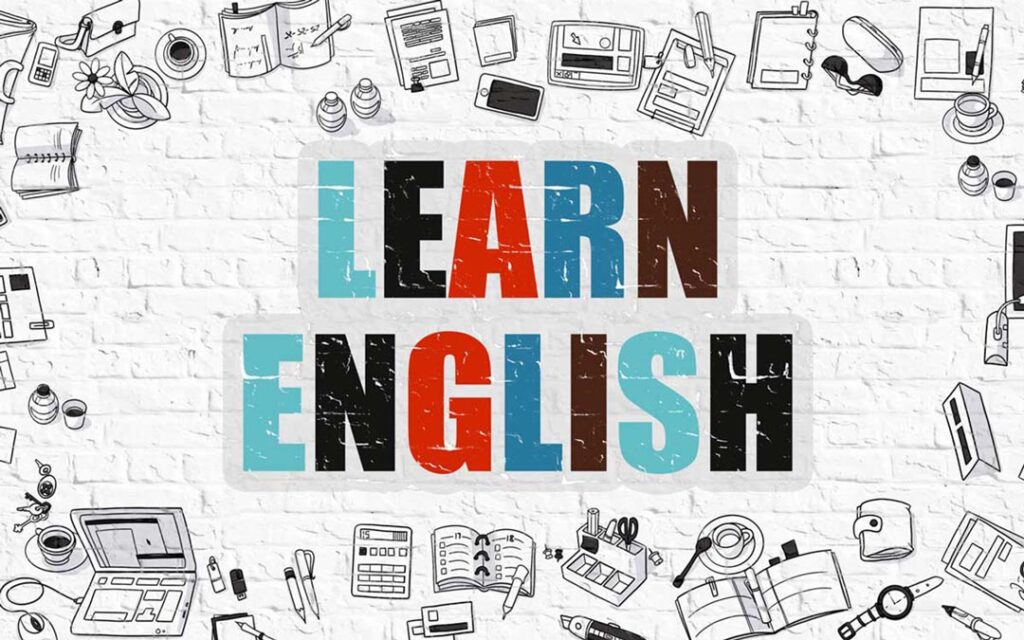Importance of Learning English

Learning English is an excellent option for individuals who are new to the learning process because it enables you to interact with new people and enables you to perceive things from a fresh perspective.
If you Learn new languages so it will help you to improve your listening skills. Even in terms of health, speaking two or more languages makes a person’s brain more active. In this essay, we’ll go over the fundamentals that will help you understand why learning English is important.
What is the importance of learning English?
Table of Contents
ToggleThe importance of studying English language cannot be overstated. In today’s interconnected world, fluency in English has become a vital tool for personal and professional growth. It allows individuals to communicate effectively, access information and resources, and participate fully in global discourse. Furthermore, studying English language and literature provides a solid foundation for developing critical thinking, analytical, and problem-solving skills. So, these abilities are highly valued by employers across various industries, making English majors attractive candidates for various job opportunities.

Global Communication:
English is the most widely spoken language in the world. Proficiency in English facilitates communication with people from diverse linguistic backgrounds, making it easier to collaborate in international settings. 53 nations have adopted English as their official language. The fact that 400 million individuals worldwide speak English as their primary language must be acknowledged.
Career Opportunities:
In many industries, proficiency in English is a prerequisite for employment and career advancement. English fluency can open doors to job opportunities, both locally and internationally, as many multinational companies use English as their primary language of business.
In today’s globalized job market, many employers value English proficiency. And it opens up opportunities for employment in multinational companies, international organizations, and industries where English is the primary language of operation.
Access to Information:
Much of the world’s information is available in English, including academic research, literature, and online resources. Learning English enables individuals to access a vast array of knowledge and stay informed about global developments in various fields. English is the second language that is used in the rest of the world, and it is the most widely spoken language in the world.
Education:
English is commonly used as the medium of instruction in universities and educational institutions worldwide. Proficiency in English is essential for academic success, as it enables students to participate effectively in discussions, understand course materials, and communicate their ideas clearly.
Travel:
English is often used as a lingua franca in the tourism industry. Knowing English can facilitate travel by making it easier to communicate with locals, navigate transportation systems, and access essential services in English-speaking countries. You can travel the world with ease:
By now, you may have realized that English is the second most widely spoken language, which demonstrates the value of learning English. When you travel, this is essential so that you can follow flight announcements. Street signs, emergency alerts, and train schedules are frequently translated into English.
Cultural Understanding:
English is the language of international culture, including literature, music, movies, and the arts. Learning English allows individuals to engage with diverse cultural perspectives and enjoy a wide range of cultural products from around the world. he majority of online information, as well as many of the most popular news organizations, TV programs, newspapers, and magazines around the world, are published in English. The majority of media organizations rely on written English because the majority of readers are familiar with it.
A Valuable Life Skill
English is a widely spoken language and learning it can open many doors in personal and professional life. It is a valuable skill that can be used for a lifetime. And English serves as a bridge language, facilitating communication across borders and cultures.
The Learning English challenges individuals to develop critical thinking, problem-solving, and communication skills. But it fosters resilience, adaptability, and confidence, laying the foundation for lifelong learning and personal growth.
Personal Growth:
If you Learn English it challenges individuals to develop critical thinking, problem-solving, and communication skills. It fosters resilience, adaptability, and confidence, laying the foundation for lifelong learning and personal growth. Learning English can be a rewarding and enriching experience. Whether through exploring English literature, enjoying English-language media, or connecting with speakers of English from around the world. These individuals find joy and fulfillment in their language learning journey.
Top Career Opportunities after English Language Graduation

A degree in English language or literature opens up a variety of career opportunities in diverse fields. Here are some top career paths:
a) Content Creation Editing:

English graduates often excel in content creation, writing, and editing roles. They can work as copywriters, content editors, technical writers, or editors for various media platforms, publishing houses, marketing agencies, or corporate communications departments.
Content creation editors analyze content performance metrics, such as website traffic, engagement metrics, and conversion rates. And the Content creation editors ensure that written materials meet high standards of quality, including accuracy, clarity, coherence, and relevance.
b) Education and Academia:

Many English graduates pursue careers in education, becoming teachers, professors, or educators at schools, colleges, or universities. They can also work as academic advisors, curriculum developers, or education administrators.
English language graduates can make valuable contributions to education and academia, inspiring students, advancing knowledge, and shaping the future of language learning and literature appreciation. They can pursue rewarding careers in education and academia, leveraging their strong language skills, analytical abilities, and passion for literature and communication.
c) Translator/Interpreter:

Translators and interpreters facilitate communication between individuals who speak different languages. They convert written or spoken content from one language to another, ensuring accurate and culturally appropriate translations. These Translators and interpreters can specialize in various fields, such as literature, legal documents, or business meetings.
They can translate a wide range of materials, including documents, articles, books, websites, legal texts, technical manuals, marketing materials, and more. And Translators need excellent language skills, cultural awareness, and subject matter expertise in specific fields. Interpreters work in various settings, such as conferences, meetings, courtrooms, hospitals, business negotiations, and international events.
d) Public Relations Specialist:

Public relations specialists manage an organization’s image and communication with the public. They create and distribute press releases, handle media inquiries, and develop strategies to enhance the organization’s reputation. And the strong written and verbal communication skills, including proficiency in English, are crucial for this role.
PR specialists need to understand how the media works and how to effectively pitch stories to journalists and media outlets. It can develop strategic communication plans to promote the image and reputation of their clients or organizations. And PR specialists handle crises and manage reputation issues that may arise for their clients or organizations.
e) Editor:

Editors play a crucial role in the publishing industry by reviewing and refining written content before it is published. They ensure that the content is grammatically correct, coherent, and meets the publication’s standards. These editors can specialize in various areas, such as copyediting, proofreading, or developmental editing. The editors collaborate with writers, authors, and content creators to develop written materials, including articles, manuscripts, reports, blog posts, and marketing collateral.
Editors enforce style guidelines and standards to maintain consistency and coherence in written content. The Editor can develop expertise in specific subject areas or industries And this allows them to provide informed feedback and guidance on content related to those fields.

With the increasing importance of online presence, English graduates can explore careers in digital marketing, content marketing, or search engine optimization (SEO). They can work as digital marketers, content strategists, SEO specialists, or social media managers for digital marketing agencies or e-commerce companies.
English language graduates can pursue rewarding careers in digital marketing and search engine optimization (SEO) due to their strong communication skills, analytical abilities, and understanding of language and culture. These English language graduates can optimize digital content for search engines to improve visibility and ranking.
g) Publishing and Journalism:

English graduates with strong writing and analytical skills can pursue careers in publishing, journalism, or media. They can work as journalists, reporters, editors, or publishers for newspapers, magazines, online media outlets, or publishing houses. These english language graduates can pursue careers as journalists, reporters, or correspondents for newspapers, magazines, online publications, radio stations, television networks, or news agencies. They can work in various roles within the publishing industry, including editorial, marketing, sales, production, or rights management.
h) Human Resources and Training:

English graduates with strong communication and interpersonal skills can pursue careers in human resources (HR) or employee training and development. They can work as HR specialists, recruiters, training coordinators, or organizational development consultants for businesses or nonprofits. The English language graduates can excel in the field of human resources (HR) and training, leveraging their strong communication skills, empathy, cultural awareness, and critical thinking abilities.
The scope of english language graduates can support HR administration tasks, including employee recordkeeping, payroll processing, benefits administration, and compliance with labor laws and regulations.
Background and Scope of English Language Studies
The scope of Learning English language studies extends beyond the boundaries of classroom education. With Some advancements in technology and globalization, online platforms and language centers have emerged as valuable resources for language learning. These platforms provide interactive learning experiences, allowing individuals to develop their English language skills at their own pace.
Learning English Language offer a rich and interdisciplinary exploration of the English language, encompassing linguistic analysis, literary interpretation, language teaching and learning, sociocultural inquiry, and practical applications in diverse professional contexts. As a dynamic and evolving field, English Language Studies continue to adapt to changes in language use, technology, globalization, and cultural diversity, offering valuable insights into the role of English in the contemporary world.
The study of Learning English encompasses various aspects, including grammar, vocabulary, pronunciation, reading, writing, and listening skills. And it involves the exploration of literature, language analysis, and cultural understanding.
Scope of English Language Studies:

Literature:
English Language Studies encompass the study of English literature, ranging from classic literary works to contemporary texts. And this includes poetry, prose, drama, fiction, non-fiction, and literary criticism. Scholars analyze literary themes, genres, styles, and techniques, exploring the cultural, historical, and socio-political contexts in which literature is produced and interpreted.
Professional Applications:
This have practical applications in various professional fields, including journalism, publishing, editing, public relations, marketing, advertising, translation, interpretation, academia, and language education. But graduates with expertise in English language and communication skills are in demand in a wide range of industries and sectors.
